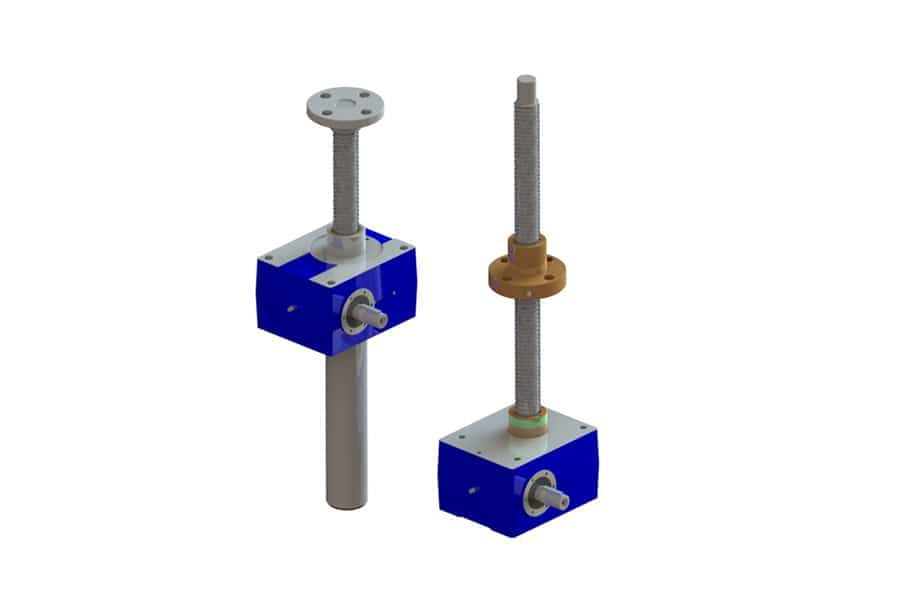Screw jacks are the powerhouses, but they don’t operate in a vacuum. The drive motor acts as the engine, providing the muscle to translate electrical energy into the mechanical movement of the screw jack. Choosing the right motor is crucial for optimal performance, efficiency, and longevity of your entire system. Here’s a roadmap to guide you in selecting the ideal drive motor for your screw jack application:
Understanding Your Screw Jack:
- Load Capacity: The load capacity of your screw jack dictates the torque required from the motor. A motor with insufficient torque will struggle to lift or move the intended weight, leading to inefficiencies and potential overheating.
- Speed Requirements: Consider the desired lifting or lowering speed of your screw jack system. The motor’s speed rating should meet or exceed these requirements to ensure efficient operation.
- Duty Cycle: The frequency and duration of operation for your screw jack system classifies the duty cycle. For continuous or heavy-duty applications, select a motor designed for such workloads to prevent premature motor failure.
Motor Options and Considerations:
- AC Induction Motors: These are reliable and cost-effective options, offering good starting torque and variable speed control through the use of variable frequency drives (VFDs). However, they might be bulkier compared to some DC motor options.
- DC Motors: DC motors provide excellent speed control and can be more compact than AC motors. However, they may require additional control circuitry and potentially higher maintenance compared to AC motors.
- Geared Motors: These motors integrate a gearbox with the motor itself, offering reduced motor speed and increased torque output. This can be beneficial for applications requiring high lifting capacity at slower speeds.
Additional Factors to Consider:
- Power Supply: Ensure the chosen motor is compatible with your available power source (AC or DC voltage).
- Environmental Factors: Consider the operating environment. Some motors might be better suited for dusty, wet, or hazardous environments than others.
- Control System Integration: The motor’s compatibility with your control system is crucial. Ensure they can communicate effectively to achieve precise operation of the screw jack system.
Beyond the Basics:
- Efficiency: Look for motors with high efficiency ratings to minimize energy consumption and heat generation.
- Noise Levels: In noise-sensitive environments, consider motors with lower noise output.
- Maintenance Requirements: Evaluate the maintenance requirements of different motor options and choose one that aligns with your resources and capabilities.
Conclusion:
Selecting the right drive motor for your screw jack system is an investment in performance and longevity. By carefully considering the factors outlined above and consulting with qualified professionals, you can create the perfect team – a powerful screw jack paired with the ideal motor – to ensure efficient, reliable, and successful operation for years to come.


